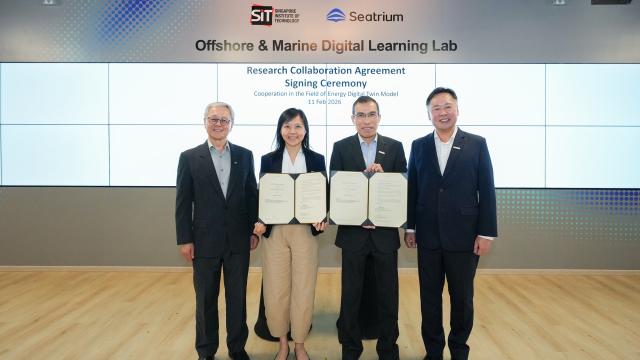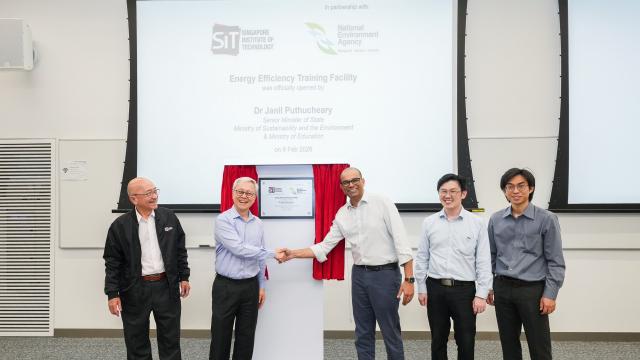As the shelf-life of skills shortens, it's time to rethink the traditional approach to upskilling. With competency-based education, employees are able to master the skills that directly impact their careers, and employers are able to assess competency accurately.
Does the perfect worker exist? Some hiring managers prefer to look for degrees and qualifications, while others prioritise real-world experience. But the one thing that sets a star candidate apart from the rest of the slate is the ability to learn. Proactively learning new knowledge and skills to keep growing is a trait employers desire – and for good reason.
Increasingly, the concept of ‘necessary’ skill sets is being redefined — the shelf life of skills has shortened (as short as two to three years for technical skills), and the demand for new skill sets emerges constantly, prompting both individuals and organisations to reconsider how they approach professional development.
Various factors are converging to reshape the very foundation of work today.
First, new emerging technologies bring about disruptions at exponential rates while promising significant increase in productivity. Take generative AI for example, which has spurred much discourse on its potential threat to the very existence of many job roles. Through automation and streamlined processes, tasks that were once time-consuming and resource-intensive now have the potential to be accomplished faster and more efficiently.
Second, frequent and lifelong learning has become a necessity in such fast-moving times; learning to obtain the relevant knowledge and skills without the competency to apply them almost immediately will not be sufficient.
Such developments beg these questions:
- How can the human workforce be upskilled to utilise the tech-powered workforce for greater value, so that we see job expansions instead of job losses?
- How can skills and competencies be developed in a way that’s relevant, timely, and are able to support real-life applications?
With this, the emphasis goes beyond traditional technical learning and extends to include practical skills. Particularly, competency-based education, which is premised on learners acquiring new competencies and being able to apply them to take on more significant roles in their organisations or to pivot to emerging technologies, has become a bigger focus in this transformative landscape.
Speaking at last month’s panel discussion on “Revolutionising education for a stronger talent pool”, Professor Chua Kee Chaing, President, Singapore Institute of Technology (SIT) (pictured below, left), set the context: “We are no longer training people for the career of a lifetime, but a lifetime of careers.
From left: Tan Kok Yam, Chief Executive, SkillsFuture Singapore; Dr Charla Long, President, Competency-Based Education Network; Professor Chua Kee Chaing, President, SIT; Dr Lisa McIntyre-Hite, Founder and Principal, Learning Ecosystem Design; Associate Professor May Lim, Assistant Provost (Applied Learning), SIT. (SIT Photo)
People have to keep coming back for new skills at different junctures in their career, he noted.
The session he spoke at took place on day one of the Applied Learning Conference (ALC) on 20 July 2023, attended by Human Resources Online. It saw leaders discussing competency-based education (CBE) in the context of Singapore and its impact on the future of learning; insights into the nation’s evolving job landscape, equipping in-employment learners with essential competencies for success, and more.
Alongside Professor Chua, the panel comprised:
- Tan Kok Yam, Chief Executive, SkillsFuture Singapore
- Dr Charla Long, President, Competency-Based Education Network
- Dr Lisa McIntyre-Hite, Founder and Principal, Learning Ecosystem Design
- Moderator: Associate Professor May Lim, Assistant Provost (Applied Learning), SIT
Highlights of the discussion, as well as the ALC, are shared below for the benefit of Singapore HR and learning leaders.
A Different Lens on Learning: Competency-based Education
CBE is an educational approach that focuses on the mastery of skills and knowledge through demonstrating proficiency in specific competencies. This way, the emphasis goes beyond developing knowledge and skills, and onto the ability to apply them in the real world.
Unlike one-size-fits-all training programmes, competency-based learning focuses on fostering expertise and practical abilities that align precisely with the demands of modern job roles. The priority is on developing skills that not only adapt to the shifting professional landscape but also have a lasting and meaningful impact on individuals' careers.
Such an approach to education not only allows individuals to focus on acquiring the precise skills and knowledge required for a particular role, but it also enables learners to identify and address their skills gaps more effectively. As a result, employers can accurately assess the level of competence an individual has, whether it has been acquired through prior formal and informal learning, which can range from education qualifications, industry training, or work experience.
Dr Long aptly summarises it: “CBE is not just going to teach you the knowledge; it's going to make sure you can actually do it.”
Competency-based learning can boost personalised learning by pinpointing specific concepts learners struggle with. Dr McIntyre-Hite assures, “When done well and done intentionally, CBE can supercharge personalised learning.”
It may seem a daunting task, as personalised learning must account for the diverse needs of various learners. But by identifying which concepts students struggle with, educators can utilise data and technology to custom-create the right resources. Dr McIntyre-Hite affirms: “This is why having a competency-based approach goes hand-in-hand with having a clear assessment strategy. Those two things must be in place to truly supercharge that personalisation.”
Why Competency-based Education Is So Relevant Today
CBE is essential in a world where the idea of a “perfect worker” is being challenged.
The “perfect worker” is one who is the right person, with the right skills at the right time, in the right position. However, with the organisation evolving so quickly today, achieving all of these – all at the same time – might be a stretch.
Dr Long believes that “the perfect worker understands the knowledge, the skills, and the abilities they bring to work every day, and how their current employers leverage it.”
As such, if their job changes, they can find a way to bring forth and articulate the previous skills they had picked up in the next role they take up.
Tan affirms: “With this churn in skills and competency needs, the response is to have a mobile labour force.”
Diving into the Future of CBE with the New SIT Teaching and Learning Academy
Against this backdrop, the SIT Teaching and Learning Academy (STLA) was launched at the ALC. The event was graced by Chan Chun Sing, Singapore’s Minister for Education (pictured below, right).
The launch of the new SIT Teaching and Learning Academy during the Applied Learning Conference was graced by Education Minister Chan Chun Sing. (SIT Photo)
STLA aims to be a leader for CBE to boost education progress for in-employment learners looking to upskill or reskill themselves. As Professor Chua pointed out in his welcome address, a major benefit of having an academy like STLA to drive initiatives in CBE is to enable the recognition of prior learning (RPL). RPL has the ability to comprehensively evaluate an individual’s competency level to do a task.
In that vein, STLA’s RPL framework is a novel way for SIT to assess and certify a learner’s competencies attained via prior learning, for the purpose of granting credit waivers in a programme of study in the University.
It will offer the following benefits to learners:
- Improved access to higher education by allowing in-employment learners to gain access to degree programmes using relevant work experience and learning.
- Reduce the time and cost invested in formal education when learners can use their existing and relevant knowledge and skills to earn credits. This also means that learners can invest time in learning what is truly new to them and not repeat what they already know.
- Foster enhanced self-esteem and motivation by recognising a learner’s competencies.
Professor Chua stated: “Through STLA, we also hope to cultivate a deeper understanding of the upskilling and reskilling challenges faced by in-employment learners.
“We will spearhead a comprehensive study to measure and track the impact of CBE on in-employment learners, as well as analyse the perspectives of learners, employers and educators. The insights gained will be used to develop purpose-built programme offerings to support in-employment learners in their upskilling journeys.”
This year, the two-day ALC was held with the theme ‘Advancing Applied Learning and Competency Development in the Digital Age’. The conference comprised eight parallel sessions with workshops and presentations by speakers from various institutes of higher learning (IHLs), agencies and industry.
Find out more about STLA and how it will boost education progress for in-employment learners through CBE here: https://www.singaporetech.edu.sg/sit-teaching-learning-academy
This article was first published in Human Resources Online.















![[FA] SIT One SITizen Alumni Initiative_Web banner_1244px x 688px.jpg](/openhouse2025/directory/openhouse/openhouse/sit-teaching-and-learning-academy/centre-professional-communication/sites/default/files/2024-12/%5BFA%5D%20%20SIT%20One%20SITizen%20Alumni%20Initiative_Web%20banner_1244px%20x%20688px.jpg)


